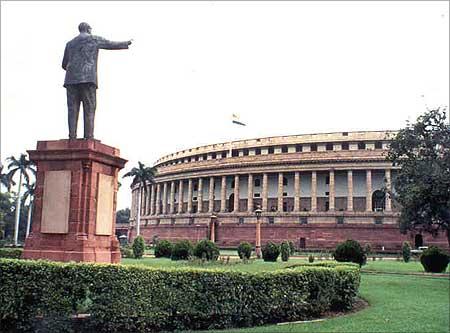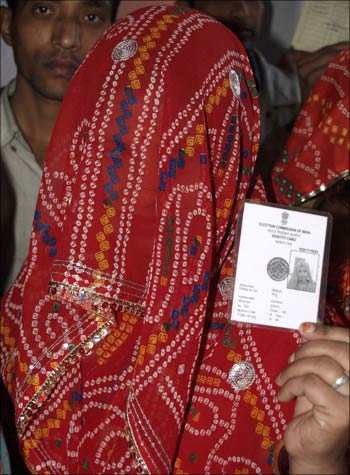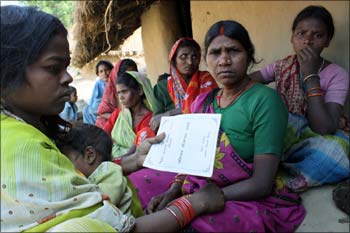 | « Back to article | Print this article |
UPA-II must close ranks behind its only workable big idea
It is, indeed, clear that the UID project has been allowed to be attacked from both Left and Right because the government has allowed turf warfare between ministries and departments to impact the project's implementation.
The UID project, now brand-named Aadhaar, is once again being assailed.
The recommendations of Parliament's Standing Committee on Finance, chaired by the Bharatiya Janata Party's Yashwant Sinha, are basically a comprehensive list of objections to both the project and the proposed legislation governing it, the National Identification Authority of India Bill, 2010.
The committee's objections are a curious mixture; some attack the very basis of the project, others question its implementation.
Some of those points on implementation are very valid indeed, and will need to be addressed.
Click NEXT to read further. . .
UPA-II must close ranks behind its only workable big idea
For instance, do biometric methods of identification fail when they have to deal with those who are dependent on manual labour for a living, thus putting stress on their hands and fingerprints?
Yet the overall thrust of the objections appears to be that the project itself is a silly waste of time, that it won't get the job done, and that the job it is supposed to be doing is not worthwhile anyway.
As substantiation for this, the committee gleefully takes the opportunity to remark on the 'serious difference of opinion within the government on the UID scheme'.
Click NEXT to read further. . .
UPA-II must close ranks behind its only workable big idea
It is, indeed, clear that the UID project has been allowed to be attacked from both Left and Right because the government has allowed turf warfare between ministries and departments to impact the project's implementation.
One of the central issues is that the BJP-led National Democratic Alliance government had, in 2003, set up a programme to enumerate India's citizens.
Called the National Population Register, the idea was to essentially create a citizenship card -- with the unspoken implication that this would be used to investigate questions of infiltration and illegal migration, which the BJP believed was a concern that would resonate especially strongly with its support base.
Click NEXT to read further. . .
UPA-II must close ranks behind its only workable big idea
The Sinha-chaired committee makes much of the fact that the UID project, on the other hand, does not intend to try and determine citizenship, only identity.
The fact, however, is that the UID project is conceptualised as -- and will only really work as -- a light-weight solution to the problem of proving identity.
Yet observers have been treated to the spectacle of one branch of the government, the home ministry, parroting the BJP's arguments -- empowering the Standing Committee's outright rejection of the Bill, the project, and the very idea of a unique ID.
Visible in these divisions, again, is this government's continuing inability to clamp down on those exercising veto power without responsibility.
When UPA-II took office, amid much optimism, the UID project was to be one of the big achievements of its term.
Click NEXT to read further. . .
UPA-II must close ranks behind its only workable big idea
Like the food security Bill, the project has now become mired in the government's inability to speak and act as one.
Unlike the food security Bill, however, the UID has the potential of fixing many of the problems the government is in -- the enormous, wasteful subsidy bill that is causing the fiscal deficit to balloon and cramping its policy space, for one.
UPA-I will be remembered, perhaps, for the right to information and the employment guarantee scheme.
If UPA-II allows its infighting and indecision to scuttle the UID project, it loses its only good big idea. It faces the very real prospect of leaving nothing for posterity.





